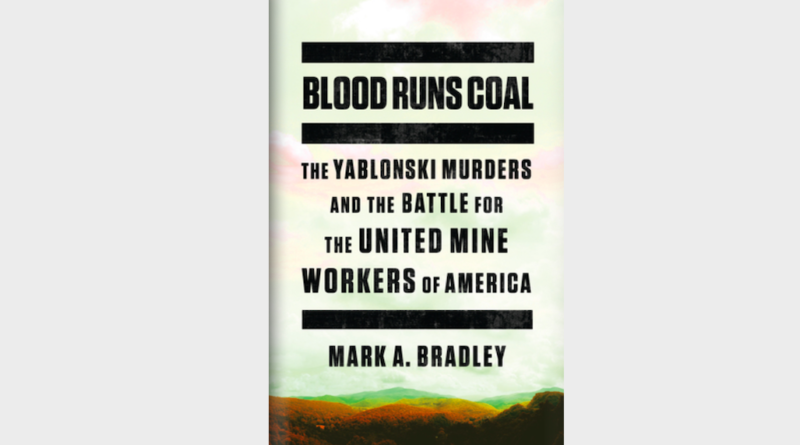REVIEW: ‘Blood Runs Coal: The Yablonski Murders and the Battle for the United Mine Workers of America’
Image courtesy of WW Norton / Provided by official site.
The events and individuals described in Mark A. Bradley’s new nonfiction book are endlessly fascinating and supremely distressing. Blood Runs Coal: The Yablonski Murders and the Battle for the United Mine Workers of America details the corrupt and bloody leadership of Tony Boyle, the former president of the UMWA, and how he took on, with brute force, a challenging rival: Joseph “Jock” Yablonski.
The setting is the late 1960s, the end of a tumultuous time in American history and the beginning of further bloodshed in Vietnam. The civil rights movement had been at the center of the news headlines, as well as the many assassinations of the decade, from the Rev. Martin Luther King Jr. to the Kennedy brothers. Bradley frames the book’s content against this historic backdrop.
Boyle, by all accounts, was a corrupt leader of an enormous labor union. The book alleges that he played fast with the money and the power that he had access to in the top position, and several people who didn’t fall in line with his vision paid dire consequences. Yablonski did the unforgivable: He ran against Boyle in an election for the UMWA’s presidency. The two already didn’t like each other, butting heads on Boyle’s relationship with the coal operators, but this move on Yablonski’s part sealed his fate as an enemy of the union president and his team of cronies.
As the subtitle of the book portends, this struggle ends with the killing of Yablonski and two of his family members. The triple murder, described in vivid and horrifying detail by Bradley, comes at the halfway point of the book because the author is interested not only in the true-crime lead-up of how Boyle and his henchmen took down the Yablonskis, but also the aftermath in the court system, in the press, in the halls of Congress and in the union itself. The second half of the book goes in depth on how Yablonski’s legacy was secured by fellow miners — and one enterprising attorney and a dedicated prosecutor — who stood up and demanded justice and change.
The book is well researched (the end notes take up dozens of pages), and this research pays dividends because Bradley is able to re-create scenes as if he were a fly on the wall. The author knows what people were wearing, what they said and even what they were feeling. He has connected all the dots, and then some. This is a meticulous nonfiction rendering.
A lot of ink is spent on the middlemen who helped Boyle’s plot come to fruition. These characters are scary; there’s no other way to define them. They are willing to take the lives of the Yablonski family for what amounted to a few bucks. Some were driven by opportunistic greed, while others, in particular the ones who set up the job but didn’t pull the trigger, were seemingly inspired by a toxic and warped fealty to Boyle. The common denominator of the middlemen: They were terrifying in their willingness to take life and also ridiculous enough to think they could get away with the crime. They didn’t just leave breadcrumbs; they left the whole damn loaf of bread.
There are many present-day lessons one can appreciate about this tragic story. For example, Ralph Nader, the legendary consumer advocate, plays a role in the narrative, and he’s still fighting for the rights of workers.
After reading these 250 pages, it becomes clear that the Yablonski murders were beyond distressing and saddening, especially for the surviving members of the family. What happened in that farmhouse 50-some years ago is the definition of tragic. There are also the hard-working miners who populate many of the anecdotes throughout Bradley’s work of nonfiction. Many of them faced health and safety concerns like black lung and mine collapses; some of them faced reprisals for going against Boyle and his local leaders. There is much corruption outlined in these pages, and near the end of the story there seems to be a calming of the waters and a refocusing on the everyday worker — the individual who headed down into the mines, always with a thought to the men who went previously and never returned home.
By John Soltes / Publisher / John@HollywoodSoapbox.com
Blood Runs Coal: The Yablonski Murders and the Battle for the United Mine Workers of America by Mark A. Bradley. 352 pages. WW Norton. Click here for more information.

